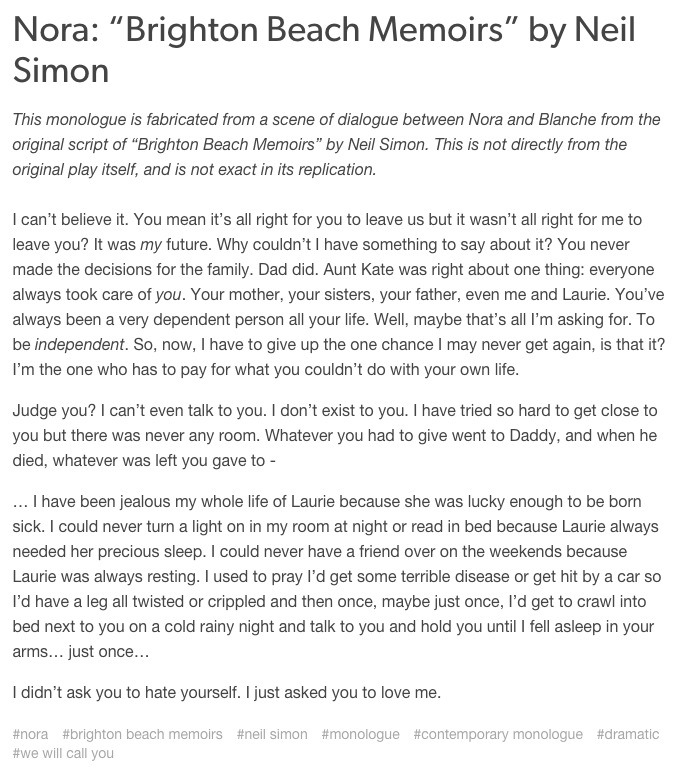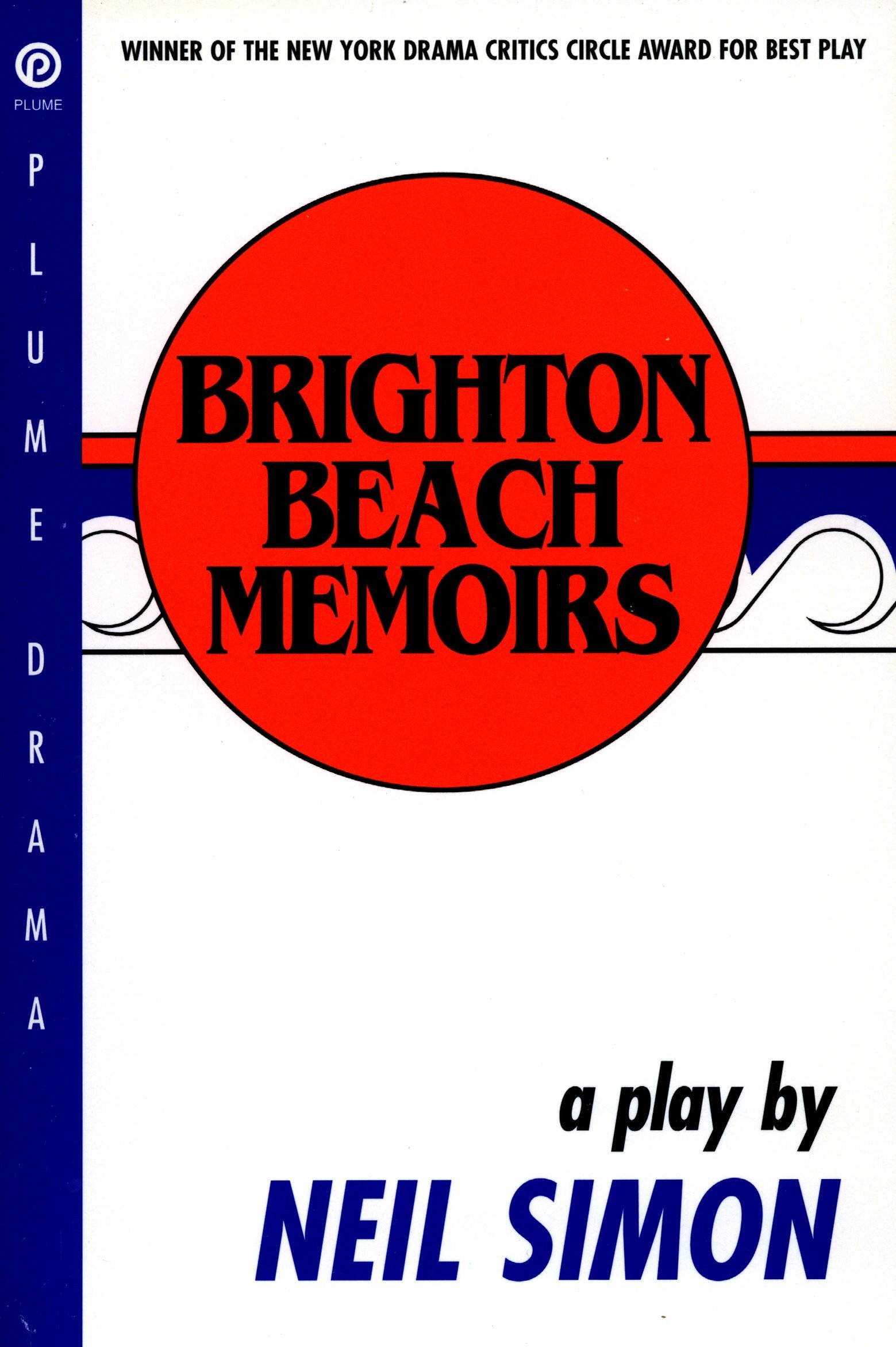Neil Simon’s Brighton Beach Memoirs is a poignant exploration of family life, dreams, and aspirations set against the backdrop of 1930s Brooklyn. The monologues in the play serve as windows into the hearts and minds of its characters, showcasing their struggles, humor, and resilience. This article delves deep into these monologues, examining their significance, themes, and cultural relevance today.
Understanding Brighton Beach Memoirs
Brighton Beach Memoirs, written by Neil Simon in 1983, is the first play in what is known as the Eugene Trilogy. It is semi-autobiographical, drawing from the playwright’s own experiences growing up in a Jewish family during the Great Depression. The story centers around Eugene Morris Jerome, a teenage boy who aspires to be a writer and is caught in the whirlwind of his family’s life.
The Role of Monologues in Brighton Beach Memoirs
Monologues in Brighton Beach Memoirs serve several purposes:
- **Character Development:** They provide insight into the characters’ thoughts, feelings, and motivations.
- **Theme Exploration:** The themes of family, ambition, and the immigrant experience are fleshed out through these individual speeches.
- **Emotional Engagement:** The monologues evoke empathy and understanding, allowing audiences to connect with the characters on a deeper level.
Key Monologues and Their Analysis
1. Eugene’s Opening Monologue
The play opens with Eugene’s monologue, where he introduces himself and his family. This sets the tone and provides context for the story. Eugene’s humor is evident, as he discusses his dreams and aspirations, making the audience both laugh and reflect.
2. Kate Jerome’s Monologue
Kate, Eugene’s mother, expresses her worries about the family’s financial stability. Her monologue reveals the weight of motherhood and the sacrifices she makes for her family’s well-being. This monologue captures the essence of maternal strength and vulnerability.
3. Stanley’s Monologue
Stanley, Eugene’s older brother, has a compelling monologue about his desire for freedom. This speech highlights the clash between ambition and familial duty, reflecting the aspirations of many young adults during tough economic times.

Thematic Elements in Monologues
Family Dynamics
The monologues often reflect the complexities of family relationships, showcasing love, conflict, and the struggles of immigrant life. The characters frequently express their hopes and fears, creating a rich tapestry of emotional experiences.
Humor and Resilience
Neil Simon infuses humor into the serious themes of the play. The witty monologues not only provide comic relief but also illustrate the resilience of the characters in the face of adversity.

Cultural Identity
The characters grapple with their Jewish identity and cultural heritage. Their monologues reflect the challenges of assimilation and the desire to maintain traditions in a rapidly changing world.
Comparative Analysis of Monologues
Table: Thematic Comparisons of Key Monologues
| Monologue | Speaker | Theme | Emotional Tone |
|---|---|---|---|
| Opening Monologue | Eugene | Dreams and Identity | Humorous |
| Mother’s Worries | Kate | Family Sacrifice | Somber |
| Yearning for Freedom | Stanley | Aspiration vs. Responsibility | Pensive |

How to Perform Monologues from Brighton Beach Memoirs
Performing these monologues requires an understanding of the characters and their motivations. Here are some tips to consider:
1. Understand the Context
Know the background of the play and the specific circumstances surrounding each monologue.
2. Character Analysis
Dive deep into the character’s personality, motivations, and emotional state to deliver a genuine performance.

3. Use of Space
Incorporate appropriate movement and body language to enhance the delivery of the monologue. Engaging with the audience can create a more impactful experience.
4. Emotional Connection
Connect personally with the material. Draw from your own experiences to add authenticity to your performance.

Pros and Cons of Performing Monologues
Pros
- **Showcases Acting Skills:** Monologues allow actors to highlight their talents and emotional range.
- **Personal Connection:** Performing a personal piece can be empowering and transformative.
- **Engagement with the Audience:** A well-delivered monologue can captivate and resonate with the audience.
Cons
- **High Pressure:** Performing solo can be intimidating, with all eyes on the actor.
- **Risk of Misinterpretation:** Without proper understanding, monologues can be misinterpreted or poorly delivered.
- **Length:** Some monologues may feel too long for audiences if not engaging enough.

Conclusion
The monologues in Brighton Beach Memoirs are not merely lines in a script; they are poignant expressions of the human condition. They encapsulate the dreams, struggles, and resilience of individuals facing life’s challenges. By exploring these monologues, we gain insights into the characters’ lives and, by extension, our own. Whether you are an actor preparing for a role or a theater enthusiast, the richness of Neil Simon’s work continues to resonate with audiences today.
Frequently Asked Questions
1. What are the main themes in Brighton Beach Memoirs?
The main themes include family dynamics, cultural identity, sacrifice, and resilience in the face of adversity.

2. How do monologues enhance the play?
Monologues provide deep insights into characters’ thoughts and feelings, enhancing emotional engagement and understanding of the plot.
3. Can I perform monologues from Brighton Beach Memoirs at auditions?
Yes, many actors choose these monologues for auditions due to their emotional depth and character complexity.

4. Where can I find scripts for Brighton Beach Memoirs?
You can find scripts at various online platforms, including libraries, bookstores, and educational resources like Dramatists Play Service.